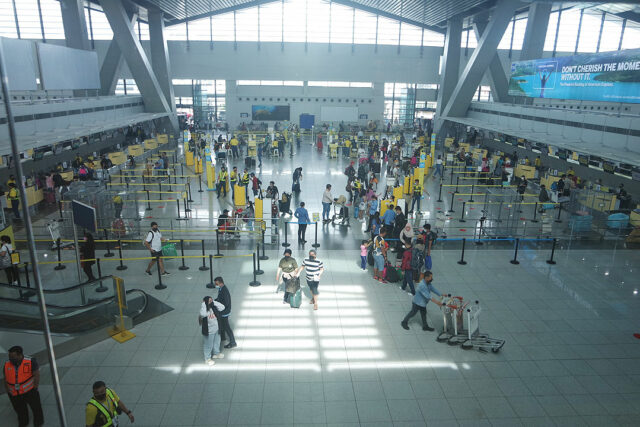Last year marked a significant chapter in tax reform, with new laws enacted to amend and update the National Internal Revenue Code (Tax Code). Among these is Republic Act (RA) No. 12023, which imposes a 12% VAT on all digital services consumed in the Philippines.
RA 12023 introduced Section 108-A to the Tax Code, outlining the liabilities of persons providing digital services. Whether individual or juridical, resident or non-resident, those who supply or deliver digital services in the Philippines are now responsible for assessing, collecting, and remitting the corresponding VAT on these services, subject to the rules of withholding VAT.
Prior to this law, only resident digital service providers were subject to VAT. With RA 12023, non-resident digital service providers (NRDSPs) are now also liable for VAT.
To implement and clarify certain aspects of the law, specifically on the liabilities of NRDSPs, the Bureau of Internal Revenue (BIR) issued Revenue Regulations (RR) No. 3-2025 and RR No. 14-2025, as well as Revenue Memorandum Circular (RMC) No. 47-2025.
VAT REMITTANCE LIABILITY
Under the law, “a non-resident digital service provider” refers to a digital service provider with no physical presence in the Philippines.
Generally, the liability for VAT remittance of NRDSPs depends on the type of transaction involved:
1. Business-to-Business (B2B) Transactions
In B2B transactions, persons engaged in business are liable for electronically filing the required remittance return and withholding and remitting the 12% VAT due on their purchase of digital services under the reverse charge mechanism. In this case, the NRDSP is not directly liable for remitting the VAT. However, they are still required to file tax returns with the BIR to report their B2B transactions.
2. Business to Consumer (B2C) Transactions
In B2C transactions, where the consumer is not engaged in business, the NRDSP is directly liable for electronically filing the VAT return and paying the VAT due through the simplified pay-only regime in the VAT on Digital Services (VDS) Portal.
Furthermore, if the NRDSP is classified as an e-marketplace, it shall also be liable for electronically filing the VAT return and paying the VAT due, provided that it controls the key aspects of the supply and either sets, directly or indirectly, any of the terms and conditions under which the supply of digital services is made or is involved in the ordering or delivery of services, whether directly or indirectly.
REGISTRATION OF NRDSPs
Section 5 in relation to Section 14 of RR No. 3-2025 and as amended by RR No. 14-2025 and clarified by RMC No. 47-2025, requires NRDSPs to register with the BIR within 120 days from the effectivity of RR No. 3-2025, or by June 1, 2025, either through the VDS Portal once it becomes available, or via the Online Registration and Update System (ORUS) prior to the VDS Portal roll-out. This requirement applies regardless of the nature of NRDSP’s transactions, whether B2B or B2C, or both.
In registering with the BIR, an NRDSP can either do it directly or through the appointment of a third-party service provider (such as a law firm, accounting firm, or consultancy firm). Appointing a third-party provider may also be done for purposes of receiving notices, record keeping, filing tax returns, and other reporting obligations. The BIR must be notified in writing of such an appointment within 30 calendar days from the date of appointment. For VAT purposes, the appointment of a third-party service provider does not classify the NRDSP as a nonresident foreign corporation doing business in the Philippines.
The BIR will issue a Certificate of Registration/BIR Form No. 2302, which contains the assigned TIN and other registration details. These details shall be used in the filing of VAT returns and remittance of VAT, if any, to the BIR.
An NRDSP which fails to register for VAT is liable for penalties, possible criminal, civil and administrative charges under the Tax Code, as amended, and suspension of business operations if warranted.
REQUIRED INFORMATION AND DOCUMENTS FOR ORUS
At a minimum, the following information is required for registration via ORUS:
1. Name of the business entity, including trade name;
2. Name of the authorized representative, and Taxpayer Identification Number (TIN) in case of a local authorized representative responsible for tax administration, if any;
3. Registered foreign address; and
4. Contact information of the NRDSP (e.g., contact number, e-mail address).
Additionally, the following documents are required:
1. Any apostilled official documentation issued by an authorized government body (e.g., government agency or municipality) that includes the name of the non-individual and the address of its principal office in the jurisdiction in which the non-individual was incorporated or organized (e.g., Articles of Incorporation, Certificate of Tax Residency); and
2. If transacting through a representative:
• Apostilled Board Resolution/Secretary’s Certificate (or equivalent) indicating the purpose and name of the authorized representative; and
• Any government-issued ID of one of the signatories and the authorized representative.
If ORUS experiences system downtime, the NRDSP with a local representative may opt to manually register with BIR Revenue District Office No. 39 – South Quezon City.
INVOICING REQUIREMENT FOR NRDSP
Under the law and its implementing rules and regulations, there is no prescribed form of an invoice for NRDSP as long as the date of transaction, transaction reference number, identification of consumer (including the TIN for B2B), brief description of the transaction and the total amount with the indication that such amount includes the VAT are present.
The invoice may be electronic and need not be registered with the BIR, provided that the contents are in the English language or include an English translation and all the required information is provided.
In case the NRDSP has mixed transactions, the invoice must clearly indicate the breakdown of the sale price by its taxable, VAT-exempt and VAT-zero-rated components. The calculation of the VAT on each portion of the sale shall be shown on the invoice.
In a B2B transaction, in which the Philippine business consumer/buyer is responsible for remitting the 12% VAT, a footnote/annotation on the invoice indicating that the Philippine business consumer/buyer is responsible for accounting and remitting the VAT due on the transaction to the BIR may be provided if the NRDSP is unable to include the VAT amount on the invoice.
TAKEAWAYS
With the upcoming June 1 deadline for the registration of NRDSPs, and the start of the imposition of VAT on digital services on June 2, 2025, the implementing rules and regulations (RR No. 3-2025 and RR 14-2025) and the latest BIR issuance, RMC No. 47-2025, serve as essential tools for navigating the complexities of RA No. 12023. These documents provide valuable guidance on the liabilities and compliance requirements for NRDSPs.
However, despite the clarity provided by these regulations, some critical unanswered questions remain relating to the requirement of registration and imposition of VAT. To note, RA No. 12023 provided that an NRDSP must register for VAT if its gross sales for the past 12 months have exceeded P3 million or if there are reasonable grounds to believe that its gross sales for the next 12 months will exceed P3 million. Some clarificatory questions on this rule include:
1. Are sales by NRDSP for digital services consumed outside the Philippines considered in determining the breaching of the P3 million VAT threshold?
2. Will registration still be required if the NRDSP does not meet the VAT threshold?
3. If the threshold is not met, will the NRDSP be subject to other percentage tax under Section 116 of the Tax Code, as amended?
As June 1 and June 2 are fast approaching, we are hoping that additional guidelines to address these outstanding questions will be provided.
Let’s Talk Tax, a weekly newspaper column of P&A Grant Thornton that aims to keep the public informed of various developments in taxation. This article is not intended to be a substitute for competent professional advice.
Tonee Rose M. Palomeno is a manager from the Tax Advisory & Compliance Practice Area of P&A Grant Thornton, the Philippine member firm of Grant Thornton International Ltd.
business.development@ph.gt.com











